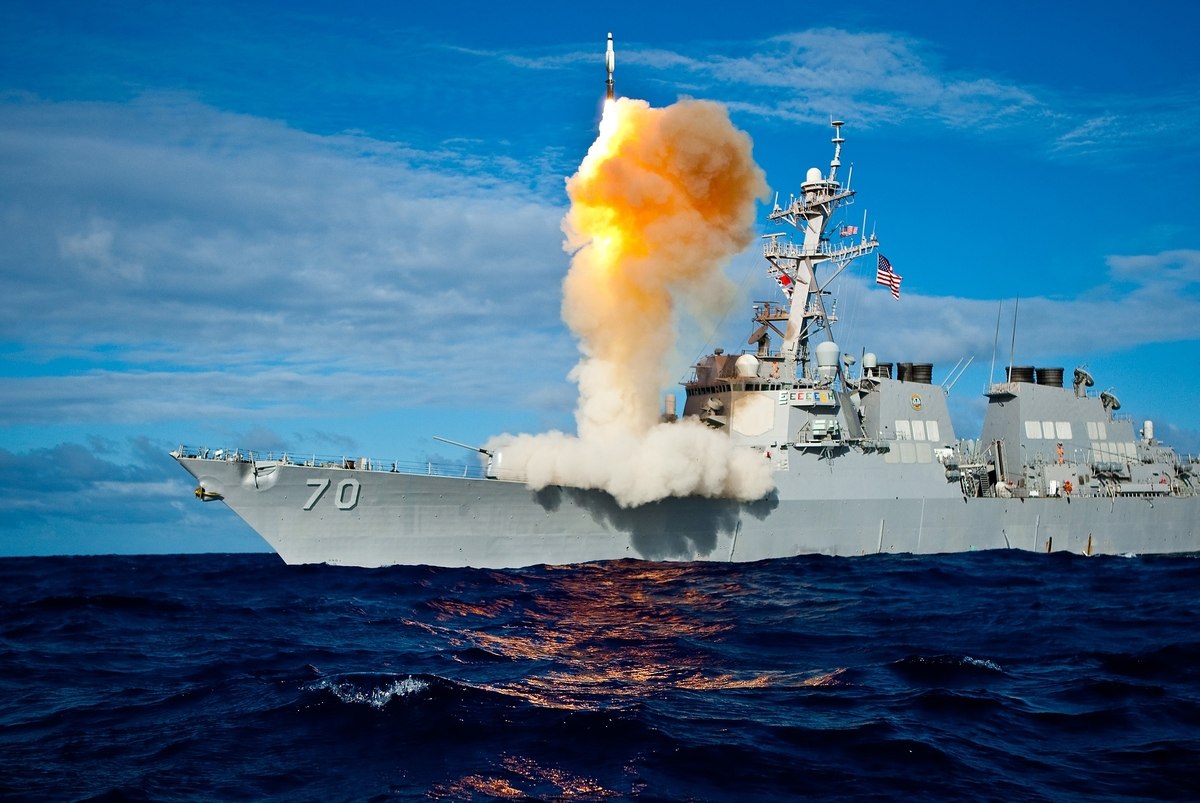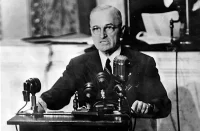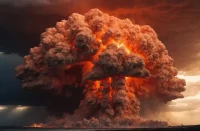Statements by various US officials suggest that America is pursuing a destructive policy not only with regard to the INF Treaty, but the New START Treaty as well.
Over the past few years, America has met with Russian diplomatic representatives around 30 times to discuss the issue, initially trying to use the open-ended treaty to unjustifiably force Moscow to get rid of its R-500 cruise missile and two intercontinental ballistic missiles – the Topol-M and the Rubezh. None of these weapons fell under the range restrictions of the treaty, however, which eliminated intermediate-range and shorter-range missiles with ranges of between 500 and 5500 km.
Recently, Washington has started to make similar demands regarding Russia’s latest development, the Avangard hypersonic glide vehicle, as well as its 9M729 cruise missile, which cannot be restricted by the treaty. Thus, the US State Department has called for Russia to either abandon the missile or change its range so that it is not in violation of the INF Treaty. This missile does not fall under the range restrictions of the treaty either, however, a fact about which the US has been thoroughly informed.
Also bizarre is US Secretary of State Mike Pompeo’s ultimatum that if Moscow does not start complying with the 1987 treaty within the next two months, then Washington will stop adhering to its obligations. Such an ultimatum is already itself a violation of article XV of the treaty, which states that if either party decides to withdraw from the treaty, then it shall give notice to the other party six months prior to its withdrawal from the treaty, not two.
It should be noted that since June 2012, when US legislators began pushing the issue of Russia’s non-compliance with the INF Treaty, Washington has not presented either its NATO allies or Moscow with any convincing evidence that Russia has violated the treaty.
Russia, meanwhile, has serious grounds for claiming that Washington has actually violated it. “Perspectives of the 1987 INF Treaty”, an English-language white paper published in Russia at the start of 2018, cited the number of such violations for the first time. According to the publication, the US has violated the treaty 92 times. It is important to clarify that this number does not include tests carried out to check the interception accuracy of US Patriot air defence systems.
To date, the total number of US violations of the INF Treaty over the last 17 years has already increased to 95.
The last of these took place in the Pacific Ocean on 26 October 2018, when an intermediate-range missile was successfully intercepted by a US Navy missile defence system. All of this information is cited in publicly available press releases released by the Pentagon’s Missile Defense Agency, which, since 2001, has been regularly testing the interceptors of its missile defence system using intermediate-range and shorter-range ballistic and cruise missiles prohibited under the INF Treaty as targets.

The US will continue to test the effectiveness of its anti-missile shield and so will continue to violate the 1987 treaty.
With a considerable list of INF Treaty violations, America is still insisting on misleading its NATO allies and the global community as a whole. At the same time, it is trying to destroy the INF Treaty while heaping all the blame on Russia.
Washington also needs to give Moscow and its NATO partners a direct, honest answer to the following questions: did the US destroy 846 intermediate-range and shorter-range ballistic and cruise missile according to the terms of the INF Treaty; and, if these were all actually destroyed, has the US created new missiles of these two classes?
In addition, it seems that Washington not only wants to tear up its 1987 treaty with Moscow, but also the New START Treaty, another important bilateral agreement that expires in February 2021.
Opinions on the treaty vary within US President Donald Trump’s administration. The US president himself believes that the treaty is preventing America from both modernising its strategic offensive nuclear weapons and from creating a new strategic nuclear triad. In support of this position, Republican senator Tom Cotton and Republican congresswoman Liz Cheney have introduced a bill that restricts the treaty from being extended for a further five years, as previously negotiated by Barack Obama, following its expiration in 2021.
Washington is clearly preparing the ground for the collapse of the New START Treaty. This is particularly true when you consider the statement by Joseph Dunford, Chairman of the US Joint Chiefs of Staff, that Moscow’s non-compliance with the INF Treaty has placed the extension of the New START Treaty in doubt.
On the other hand, Heather Nauert, Spokesperson for the US Department of State, recently gave a positive assessment of the New START Treaty, noting that it makes relations with Russia more stable and also improves the security of America and its allies.
It seems that Washington is also divided when it comes to the article stating that each side must limit the number of its nuclear warheads to 1550 and the number of its deployed and non-deployed launchers to 800.
Meanwhile, it should be noted that, in order to comply with the quantities determined by the New START Treaty, America spent two years re-equipping part of its strategic nuclear weapons (4 launchers on each of its 14 Ohio-class ballistic missile submarines and its 41 B-52H heavy bombers) and unilaterally excluded these from the treaty. This means that America can quickly increase the potential of its strategic nuclear forces and the number of its warheads to more than 1200.
In short, the country is playing a shady game with regard to the INF and New START treaties that could have dire consequences.
Russia is not ruling out the possibility of discussing the conditions for extending the New START Treaty for another five years, that is, until 2026, but the “conditions”, not the automatic extension of the treaty, and especially not at any cost.
It seems that the decision on its extension will depend on more than just Washington’s full and scrupulous compliance with the INF Treaty.
Given the link recognised by the US between strategic offensive nuclear weapons and strategic defence systems, and also taking into account a number of other types of weapons that have a direct impact on global strategic stability, there are another four objective facts in this regard that it would be wrong to ignore, namely:
– the deployment of forward-based weapons on Russia’s borders by the US and its allies in the form of US ABM bases and warehouses containing tactical nuclear weapons;
– the creation of new airborne delivery systems, including to strengthen NATO’s Baltic air-policing mission being carried out in the skies over three Baltic states that has been using dual-capable aircraft for the past 14 years;
– the build-up of general purpose forces equipped with heavy weapons throughout almost the whole of Europe, but especially in the north, east and south; and
– the Pentagon’s steady move towards deploying strike weapons in outer space.
It is important to note that this is all part of America’s current nuclear strategy, which envisages a first nuclear strike on a whole range of countries.
Unfortunately, Washington has ignored Russia’s suggestions intended to address the issues surrounding the INF and New START treaties.
The US must fully comply with the INF and New START treaties without any preconditions and ultimatums on the basis of a fundamental principle that has existed since time immemorial: pacta sunt servanda (“agreements must be kept”). What it must not do is wriggle out of them using flimsy pretexts and blame others for their own “non-compliance”.














Yes, governments should abide by their treaties and agreements!
What about Russia’s “Treaty of Friendship” with Ukraine and the Budapest Memorandum, in both of which Russia “solemnly” promised to honor Ukraine’s independence and territorial integrity? Russia’s seizure of the Crimea and its continuing war against Ukraine in the Donbas is a perfect example of how Russia “honors” its treaty obligations and agreements.
Your’e a two-faced liar, Mr. Senator/Professor.
To Mr Berezowsky:
I. If you mean the Treaty of Friendship, Cooperation and Partnership between Ukraine and the Russian Federation that was signed by the President of Ukraine Leonid Kuchma and the President of Russia Boris Yeltsin on May 31, 1997, Ukraine has violated its two key provisions, including the commitments: 1) to guarantee the rights and freedoms of citizens of another country on the same grounds and to the same extent as their own citizens; and 2) to take the necessary measures on their territory, including the adoption of appropriate legislation, to prevent and suppress any action that constitutes incitement to violence or violence based on national, racial, ethnic or religious intolerance.
On December 6, 2018, the Verkhovna Rada of Ukraine approved a bill on the termination of the Treaty from April 1, 2019. On December 10, 2018, President of Ukraine Petro Poroshenko signed the law “On termination of the Treaty of Friendship, Cooperation and Partnership between Ukraine and the Russian Federation.
So, if the Treaty is violated by Russia, why it has not been denounced by Kiev from 2014 and so on till April 1, 2019?
II. The Memorandum on Security Assurances, known as the Budapest Memorandum, has been signed December 5, 1994 in connection with Ukraine’s accession to the Treaty on the Non-Proliferation of Nuclear Weapons..
Besides Ukrainian non-nuclear pledges it has three key provisions, including the commitments of three guarantor States (Russia, the UK and the USA) who have reaffirmed their commitment to Ukraine, in accordance with the principles of the CSCE Final Act, to respect the independence and sovereignty and the existing borders of Ukraine; reaffirmed their obligation to refrain from the threat or use of force against the territorial integrity or political independence of Ukraine, and that none of their weapons will ever be used against Ukraine except in self-defense or otherwise in accordance with the Charter of the United Nations, and reaffirmed their commitment to Ukraine, in accordance with the principles of the CSCE Final Act, to refrain from economic coercion designed to subordinate to their own interest the exercise by Ukraine of the rights inherent in its sovereignty and thus to secure advantages of any kind.
Logically, Ukraine should also have commitment to refrain from three acts specified above. However, Kiev has violated all these three commitments related to its own citizens living in Donbas (not to make military threats, not to use of force, no to resort to economic coercion, etc.).
So, you have to study history and international law, Mr Berezowsky, very carefully. And in so doing do not forget the folk saying “A little knowledge is a dangerous thing”.